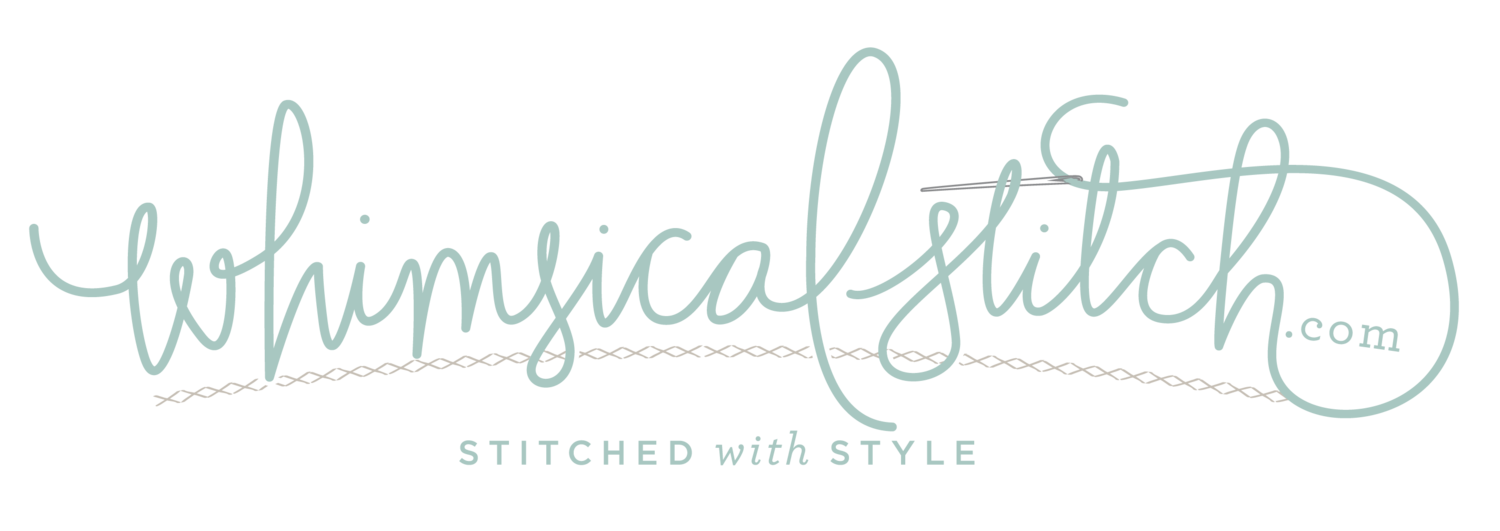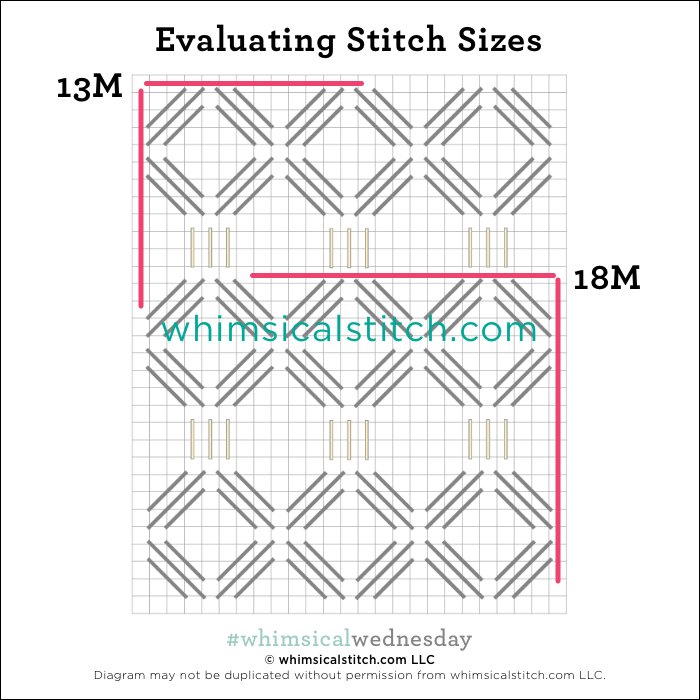My favorite week of the year is between Christmas and New Year’s Day. It’s a week that is singularly mine to do with what I want. Vacation? Sure! Great timing. Putting away the holidays? Sure! Nothing like a clean start to the year. Start some new Halloween ornaments? What a lovely idea.
Start a new Christmas stocking? Not in my world. So, this is a shout-out to @millennial_needlepointer for braving a stocking so soon after the holidays. Was happy to help her with a stitch suggestion as I massively giggled (and finished one of the above-mentioned Halloween ornaments).
The stitched sample is a sky on a stocking. Alexandra used one ply of blue Watercolours (black lines) and Fyre Werks (yellow lines) on 18M. (She also gets a high five for stitching an 18M stocking. #team13mstockingsonly.)
This stitch is directly related to two stitches that have been shared here. Its direct relative is a Woven Hungarian variant I shared here many moons ago. This stitch is nothing more than removing the stitches that are five rows wide from that stitch. I named it as I did because it is so similar to the Dolly stitch I shared here as well.
As for the why I removed the stitches over five rows? The Woven Hungarian variation fit the sky as painted perfectly. That’s why I went straight to that stitch. However, I wanted it to be lighter because it was a sky and the adorable elephants were the stars here. So, boom, bye bye stitches over five rows for a lighter touch that fits the painted space perfectly.
I’m looking forward to using this stitch for more clothing with Vineyard Silk and Silk Lame 18 for a cozy sweater, also on 13M. It will also make a jazzy pumpkin with 2-3 plies of silk floss and Fyre Werks on 18M. I’m also toying with the idea of replacing the yellow lines with a larger sequin with a size 11 seed bead or bi-cone to attach it. A lot of fun can be had here!
Just a reminder about how to evaluate stitches for size on your project.
As you are auditioning stitches (from any stitch source), count the number of canvas threads on the diagram that match your mesh size. And there you have what an inch of the stitch will look like. Evaluate that against the area where you plan to use the stitch and make your final decision. If you start integrating this step into your stitch selection process, you may be surprised at how many stitches you think are large are much smaller than you realize. (Or, in today’s case, the stitch is much larger than it looks.)
By (sometimes) including this step in my own process, I find I am now integrating much longer stitches than I ever thought I would. I used to think a stitch six rows long was super big. I have very much changed my tune, which has helped me expand my creativity, especially for large-space stitches.
Today’s stitch diagram, along with all other #whimsicalwednesday and #smallspacesunday stitch diagrams, can also be found on a Pinterest board here. Be sure to follow whimsicalstitch.com on Facebook, Pinterest, Instagram, and Twitter.
If you like what you see on this blog, there's more. Mary’s Whimsical Stitches is a series of three books offering contemporary how-to collections of more than 250 stitches (in each volume) for all stitchers, regardless of skill level. All books include updated and sequenced diagrams from this blog plus a collection of all-new stitches from private lessons and other class projects. Visit here to find a needlepoint retailer that carries my books.
New to needlepoint or looking for a refresher? Please download a handy how-to guide covering basic needlepoint stitches and stitch compensation techniques along with new top-line information on needlepoint materials and tools, how to handle threads, and other helpful needlepoint resources.
whimsicalstitch.com also sells Stitch Guides and Stitch Concepts for Melissa Shirley Designs, Zecca Designs, Sandra Gilmore, Purple Palm, Maggie, and Penny MacLeod, and many more. Click here to see the newest guides and click here to see the entire collection.
I hope you have the perfect spot for this stitch! Please enjoy! Have a wonderful #whimsicalwednesday!
A Note about Diagrams
I use color in diagrams to make them as clear as possible. The primary function of different colored lines is to illustrate a stitch sequence. For example, the layering of colors demonstrates you add them in that order. They can also provide ideas on integrating additional threads (one line for each color). Or, you can use the same thread for all color lines. That's where I encourage you to use your imagination for the space you are stitching!








